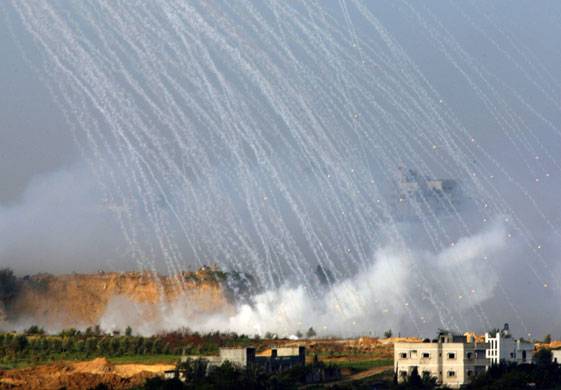London: A growing number of countries are backing an international treaty banning the production, stockpiling and use of cluster bombs, and calling on states to destroy stockpiles and clear land of unexploded munitions, a campaign group said on Thursday.
Belize, Congo are among the eight countries, plus the Palestinian Territories, that have agreed to or ratified the 2008 treaty since September last year, in which time Japan and Canada have fully destroyed their stockpiles, the Cluster Munition Coalition (CMC) said.
While cluster bombs have been used this year in five countries - Libya, Sudan, Syria, Ukraine and Yemen - that have not signed the ban treaty, several of the 117 treaty member states have condemned the attacks, the CMC annual report said.
Cluster munitions, which are scattered from planes or by artillery shells, typically explode in the air and scatter smaller "bomblets" over a huge area. These often lie unexploded until accidentally trodden on, when they detonate like mines.
"The new use of cluster munitions by a handful of armed forces outside the ban has been met with swift and strong condemnation, showing the stigma against their use is growing stronger," said Mary Wareham of Human Rights Watch (HRW), who contributed to the report.
The majority of casualties from cluster bomb attacks and unexploded bomblets in recent years have occurred in Syria, where they have killed some 2,000 people since 2012, the report said.
Civilians have accounted for nine out of 10 casualties worldwide since 2010, and half of those injured and killed were children, according to the CMC.
The 2008 treaty banned the use of cluster bombs, required stockpiles to be destroyed within eight years and areas contaminated by cluster bomb remnants to be cleared within 10 years, and called for assistance for victims.
Treaty member states including France, Germany and Mozambique have destroyed 1.3 million cluster munitions and 160 million submunitions to date, accounting for 90 percent of stocks declared by parties to the treaty, the report said.
Around 74 kilometres squared (29 miles squared) of land was cleared of unexploded cluster bomb remnants in 2014, but conflict and insecurity hindered clearance in several countries such as Afghanistan, Iraq, Somalia, South Sudan and Syria.
"Despite challenges, many of the two dozen-plus countries that are contaminated by cluster munitions remain committed to clearance of impacted areas," said Jeff Abramson, coordinator of the Landmine and Cluster Munition Monitor initiative.
"It is therefore all the more disturbing when cluster munitions are used, killing and harming civilians and creating new clearance burdens for struggling communities."






